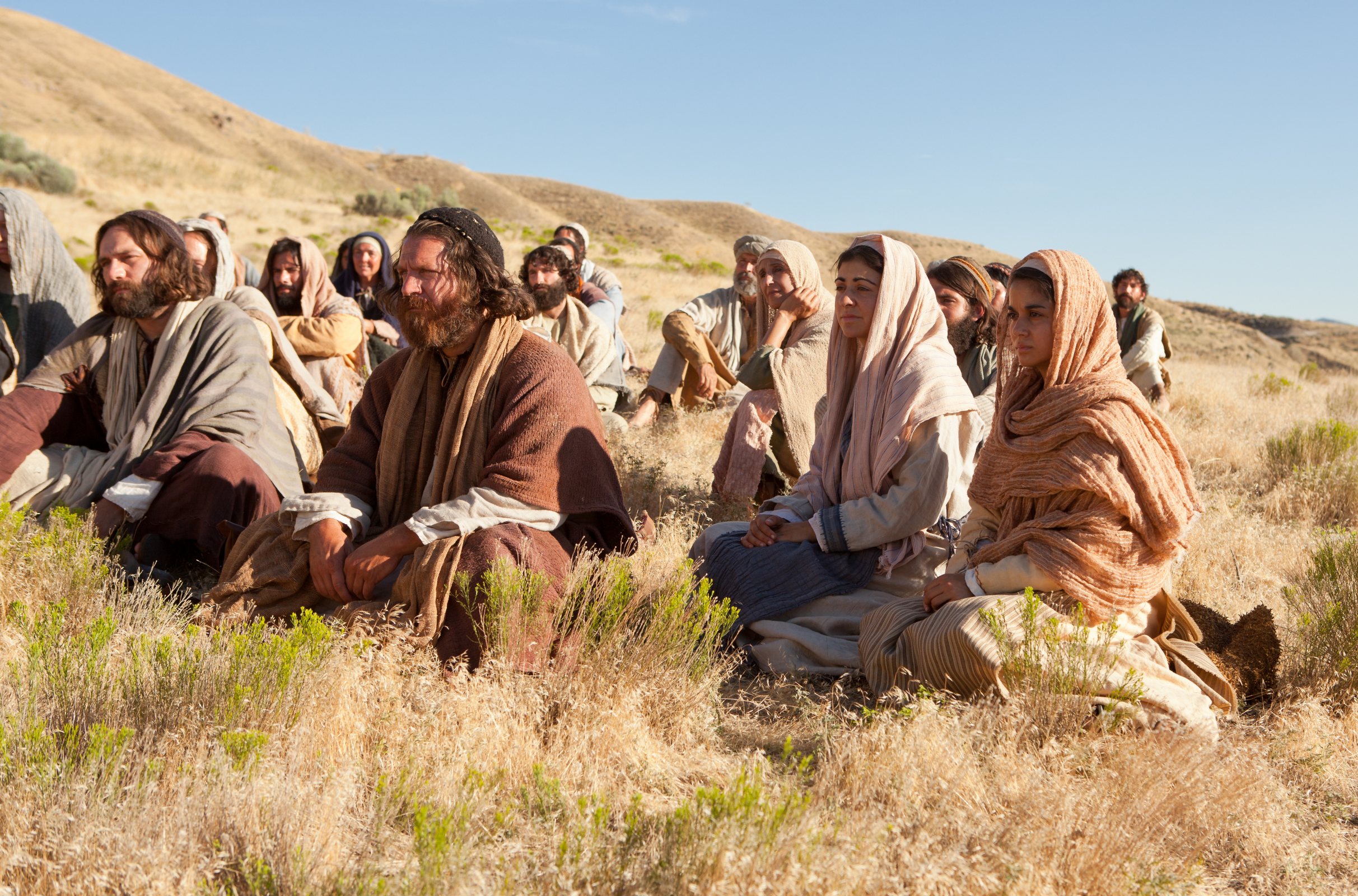Self-Righteousness
I've begun the analysis of my note-taking process in preparation for general conference in October. I decided to play catch-up with the Worldwide Devotionals and BYU speeches, and have made it to my first April conference addresses. I'm happy with the progress I'm making, but I still have some additional details to hammer out. Once I'm satisfied, I'll dedicate a post to it here.
The talk I listened to today was Tomorrow the Lord Will Do Wonders among You by Jeffrey R. Holland. Because part of what I'm trying to determine in my study involves how to handle scripture references, his message was great to analyze because it relies on so many scripture verses and examples. As I was listening, his statement on self-righteousness caught my attention: "We are to deal justly, never unjustly, never unfairly; we are to walk humbly, never arrogantly, never pridefully; we are to judge righteously, never self-righteously, never unrighteously."
He makes a necessary distinction here about self-righteousness I've never explored before, so I decided to examine the topic today in my scripture study. Because hypocrisy and the moral treatment of his laws and commandments is a topic Jesus taught about extensively in his ministry, it would be a mistake for me, as his disciple, not to consider how these relate to self-righteousness.
Surely this definition does not mean to suggest that having convictions is a problem. Providing moral guidance upon which people may confidently base their beliefs and decisions—especially moral choices—this is the objective of all religious teaching. Because this process often exists within the tenets and systems of organized religion, it unavoidably becomes a comparative exercise. I have decided on my beliefs as much by adhering to and adopting beliefs from my own faith, as much as I have by considering other beliefs, and choosing not to adopt them. By virtue of taking any stance that contradicts another person's religion, I exist in contrast to their beliefs. The degree of certainty in which I, or they, hold to those personal beliefs is not an issue. Presenting this "contrast" as the defining principle of self-righteousness is deeply problematic.
The discernment between ideas, and the rational choice whether to adopt or reject them, this process cannot be defined as self-righteousness. Rather, the formulation and reconciliation of a personal belief system is an individual exercise of human reasoning. Confusion related to this language is why I prefer Oxford's definition:
The problem with self-righteousness is not a person's "contrast from" the beliefs and actions of others. Rather their attitude, the spirit in which they engage with others, in choosing or communicating their personal moral choices; their "unfounded" self-perception, when they assert their personal superiority or degree of correctness; this is self-righteousness.
These various definitions emphasize various elements of this attitude:
Examples of these behaviors of particular relevance to religious people, including Latter-day Saints, would be:
Most of us can recognize how reprehensible this behavior is to our sensibilities. But are we willing to admit to that behavior when we're the ones who perpetuate it? The only thing worse than being accused of self-righteousness is when the accusation is actually true. By taking the time to reflect honestly, we can avoid learning about this particular shortcoming in a much more painful fashion.
Matthew 12 and 23 provide a wealth of examples of this Pharisaical behavior, and Jesus' response to it. Even the Sermon on the Mount, when cross-referenced with the Savior's interactions with the Pharisees and Sadducees, condemns them in almost every point. Their behavior, in all of its self-righteousness, becomes the defining line between between heaven and hell in the teachings of Christ. (See Matthew 5:20) Because they also encouraged other people to engage in this same behavior, he warned others to beware of the "leavening" of the pharisees: the doctrines, cultures, and traditions of men that had polluted their moral senses. (See Luke 12: 1-3 and Matthew 23: 15)
Christ repeated some of these same instruction when he instituted his church among the Nephites. He also addressed their ongoing tendency to exclude people from their places of worship. (See 3 Nephi 18: 22-34) When he addressed the general populace in verses 22-25, he forbid them from ostracizing or excluding anyone from the Church. In verses 26-34, he addresses the twelve disciples he previous called to administer in the Church, outlining the disciplinary process still in use today. But he emphasizes twice more, in verses 30-32, that they should not exclude anyone from coming to church.
He tolerated no such self-righteousness in the old world, and certainly wouldn't tolerate it the new world either. His condemnation, and the consequences of divine disfavor for self-righteousness, remain consistent in both accounts.
When I maintain my devotion to him in the best way I know how, it brings out the best in me. The ability to negotiate, to solve problems, to listen, to respond with compassion to others, even if they disagree with me; all of this depends on me putting first things first. For me, that means loving the Lord and keeping his commandments.
All of the examples I've examined of self-righteousness have one thing in common: the self-righteous people put themselves and their own methods and preferences before the Lord. Doing so to make other people happy, therefore, is not a sustainable approach to avoiding accusations of being self-righteous. If anything, one could easily see how yielding to the demands of others upon our faith is how otherwise lovely people become insufferable. As the "salt loses its savor" only by contamination and mixture with outside forces, the meekness of James' "pure religion" becomes offensive to others only when it ceases to be pure. (See 3 Nephi 12:13 and James 1: 27)
Nothing good ever comes when people of faith, especially disciples of Christ, put others before God. In a way I've never fully considered before, I can see why loving God is the first great commandment; because loving others without pretension isn't possible until I learn to do so with God. When I approach him with total honesty in my spirit, I can have no illusions about my nothingness before him, and the esteem he has for me and everyone else, despite our imperfections.
The talk I listened to today was Tomorrow the Lord Will Do Wonders among You by Jeffrey R. Holland. Because part of what I'm trying to determine in my study involves how to handle scripture references, his message was great to analyze because it relies on so many scripture verses and examples. As I was listening, his statement on self-righteousness caught my attention: "We are to deal justly, never unjustly, never unfairly; we are to walk humbly, never arrogantly, never pridefully; we are to judge righteously, never self-righteously, never unrighteously."
 |
| Listeners Learn of the Higher Law Image courtesy of LDS Media Library |
He makes a necessary distinction here about self-righteousness I've never explored before, so I decided to examine the topic today in my scripture study. Because hypocrisy and the moral treatment of his laws and commandments is a topic Jesus taught about extensively in his ministry, it would be a mistake for me, as his disciple, not to consider how these relate to self-righteousness.
What does it mean to be self-righteous?
In considering the definitions of self-righteous from Merriam-Webster, Dictionary.com, Oxford, and Urban Dictionary, it was Merriam-Webster's definition that best represents the reason for my initial response. I found several of the presented definitions vague, and potentially problematic.self-righteous
convinced of one's own righteousness especially in contrast with the actions and beliefs of others : narrow-mindedly moralistic
Surely this definition does not mean to suggest that having convictions is a problem. Providing moral guidance upon which people may confidently base their beliefs and decisions—especially moral choices—this is the objective of all religious teaching. Because this process often exists within the tenets and systems of organized religion, it unavoidably becomes a comparative exercise. I have decided on my beliefs as much by adhering to and adopting beliefs from my own faith, as much as I have by considering other beliefs, and choosing not to adopt them. By virtue of taking any stance that contradicts another person's religion, I exist in contrast to their beliefs. The degree of certainty in which I, or they, hold to those personal beliefs is not an issue. Presenting this "contrast" as the defining principle of self-righteousness is deeply problematic.
The discernment between ideas, and the rational choice whether to adopt or reject them, this process cannot be defined as self-righteousness. Rather, the formulation and reconciliation of a personal belief system is an individual exercise of human reasoning. Confusion related to this language is why I prefer Oxford's definition:
self-righteous
Having or characterized by a certainty, especially an unfounded one, that one is totally correct or morally superior.
The problem with self-righteousness is not a person's "contrast from" the beliefs and actions of others. Rather their attitude, the spirit in which they engage with others, in choosing or communicating their personal moral choices; their "unfounded" self-perception, when they assert their personal superiority or degree of correctness; this is self-righteousness.
These various definitions emphasize various elements of this attitude:
- Haughtiness and self-aggrandizement
- Intolerance, specifically an unwillingness to consider other points of view, or coexist with those whose beliefs and actions differ from your own
- Hypocrisy and "showboating", especially when one's moral code forbids lifting up oneself, or tearing down another person for their differences
Examples of these behaviors of particular relevance to religious people, including Latter-day Saints, would be:
- Asserting moral dominance over others. Examples I've witnessed have included heritage in the Church, politics, sexual orientation, and financial status.
- Extolling the virtues of one's own lifestyle or choices in exclusive language. In the church, the moments when I notice this most are when people say that being married or having children is the most important thing, or the greatest thing about being alive. You may feel that way about your own life, and the rest of us are happy for you. But expecting everyone else's life or happiness to be exactly like yours, or to believe that others don't deserve happiness because they aren't married or don't have kids, that's just absurd.
- Refusing to educate oneself on the religions, cultures, and experiences of others—yet harboring suspicion against them. Contemporary examples include a mistrust of refugees, immigrants, and Muslims.
- Offering uninvited correction on principles or standards, especially in public ways that are humiliating or embarrassing to those who receive it.
- Exceeding the necessary amount or severity of correction for the sake of drawing attention to oneself.
- Expecting accommodation for one's beliefs, but refusing to give the same courtesy to others.
Most of us can recognize how reprehensible this behavior is to our sensibilities. But are we willing to admit to that behavior when we're the ones who perpetuate it? The only thing worse than being accused of self-righteousness is when the accusation is actually true. By taking the time to reflect honestly, we can avoid learning about this particular shortcoming in a much more painful fashion.
What did Jesus teach about self-righteousness?
We often refer to Jesus Christ as a patient man. Patience and long-suffering are two of his hallmark traits. However, based on numerous examples from the scriptures, the Savior has no patience for self-righteousness. Some of the harshest language he uses against anyone includes the Pharisees, for all the times they use their position and influence to lift themselves up, and find fault with others.Matthew 12 and 23 provide a wealth of examples of this Pharisaical behavior, and Jesus' response to it. Even the Sermon on the Mount, when cross-referenced with the Savior's interactions with the Pharisees and Sadducees, condemns them in almost every point. Their behavior, in all of its self-righteousness, becomes the defining line between between heaven and hell in the teachings of Christ. (See Matthew 5:20) Because they also encouraged other people to engage in this same behavior, he warned others to beware of the "leavening" of the pharisees: the doctrines, cultures, and traditions of men that had polluted their moral senses. (See Luke 12: 1-3 and Matthew 23: 15)
 |
| Jesus Teaching Pharisees Image courtesy of LDS Media Library |
Christ repeated some of these same instruction when he instituted his church among the Nephites. He also addressed their ongoing tendency to exclude people from their places of worship. (See 3 Nephi 18: 22-34) When he addressed the general populace in verses 22-25, he forbid them from ostracizing or excluding anyone from the Church. In verses 26-34, he addresses the twelve disciples he previous called to administer in the Church, outlining the disciplinary process still in use today. But he emphasizes twice more, in verses 30-32, that they should not exclude anyone from coming to church.
He tolerated no such self-righteousness in the old world, and certainly wouldn't tolerate it the new world either. His condemnation, and the consequences of divine disfavor for self-righteousness, remain consistent in both accounts.
How do we avoid becoming self-righteous?
As a Latter-day Saint, I believe Jesus Christ is the most important moral authority for all of my beliefs and decisions. I will consider his teachings and actions before those of any other person—including adherents within my own faith, men and women of other faiths, or in any other educational, civic, or professional capacity. I can't be who I am, and live up to what I value, if I compromise or temper my desire to serve God. I can't be less true to the promises I've made to the Lord, even at the risk of potentially making someone else uncomfortable.When I maintain my devotion to him in the best way I know how, it brings out the best in me. The ability to negotiate, to solve problems, to listen, to respond with compassion to others, even if they disagree with me; all of this depends on me putting first things first. For me, that means loving the Lord and keeping his commandments.
All of the examples I've examined of self-righteousness have one thing in common: the self-righteous people put themselves and their own methods and preferences before the Lord. Doing so to make other people happy, therefore, is not a sustainable approach to avoiding accusations of being self-righteous. If anything, one could easily see how yielding to the demands of others upon our faith is how otherwise lovely people become insufferable. As the "salt loses its savor" only by contamination and mixture with outside forces, the meekness of James' "pure religion" becomes offensive to others only when it ceases to be pure. (See 3 Nephi 12:13 and James 1: 27)
 |
| Witnesses of Christ Healing a Possessed Man Image courtesy of LDS Media Library |
Nothing good ever comes when people of faith, especially disciples of Christ, put others before God. In a way I've never fully considered before, I can see why loving God is the first great commandment; because loving others without pretension isn't possible until I learn to do so with God. When I approach him with total honesty in my spirit, I can have no illusions about my nothingness before him, and the esteem he has for me and everyone else, despite our imperfections.


